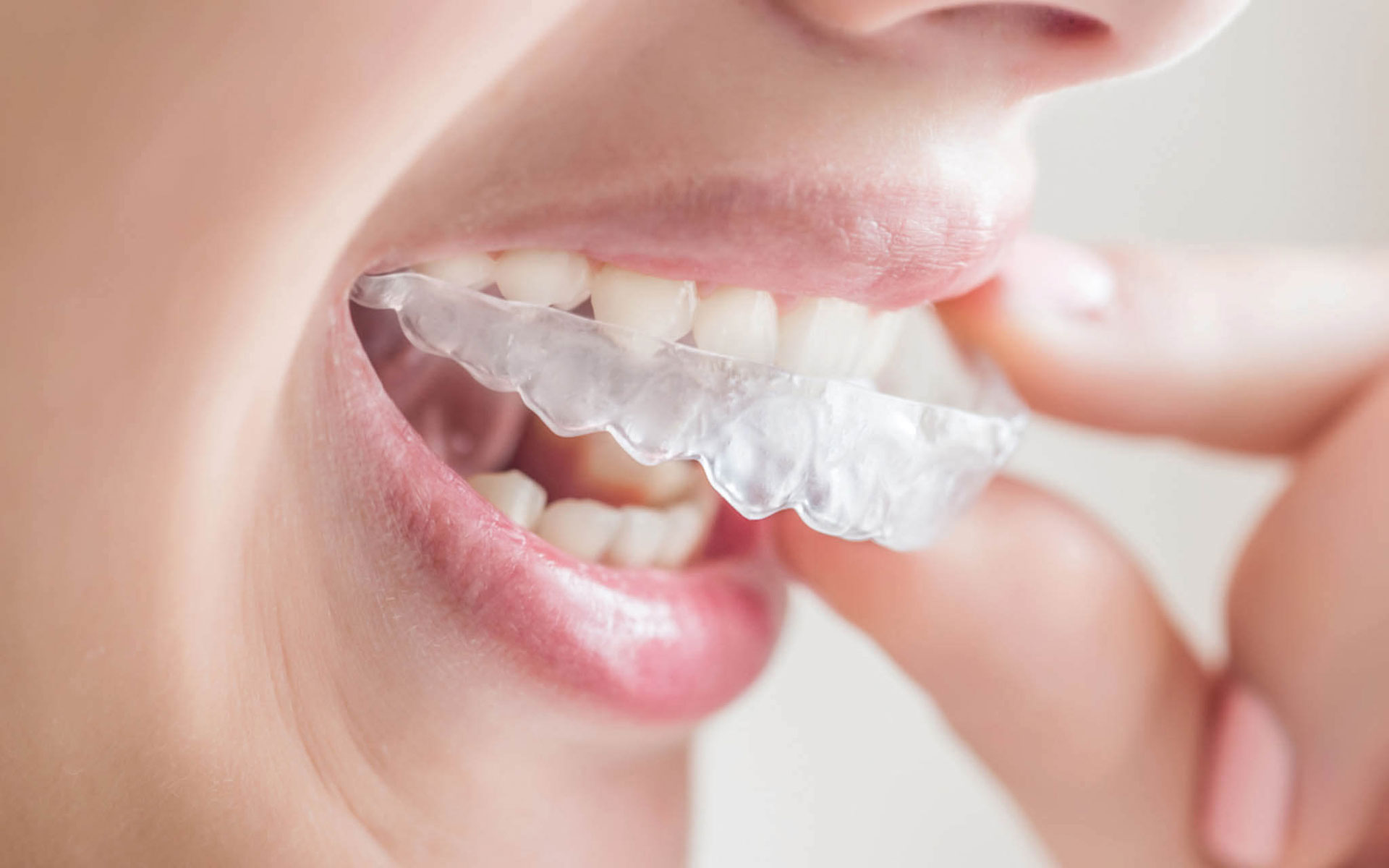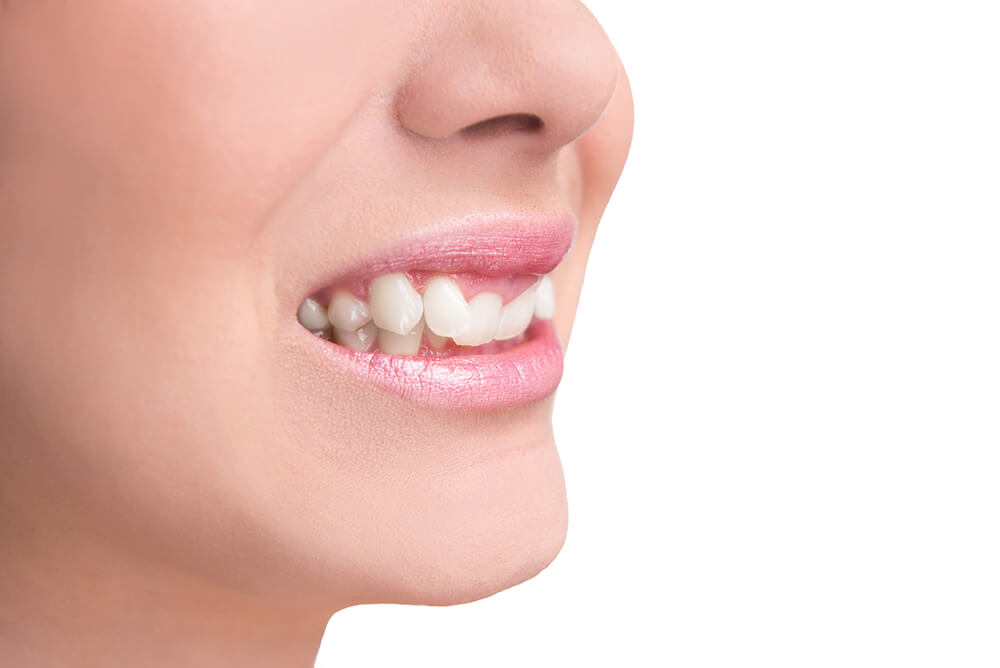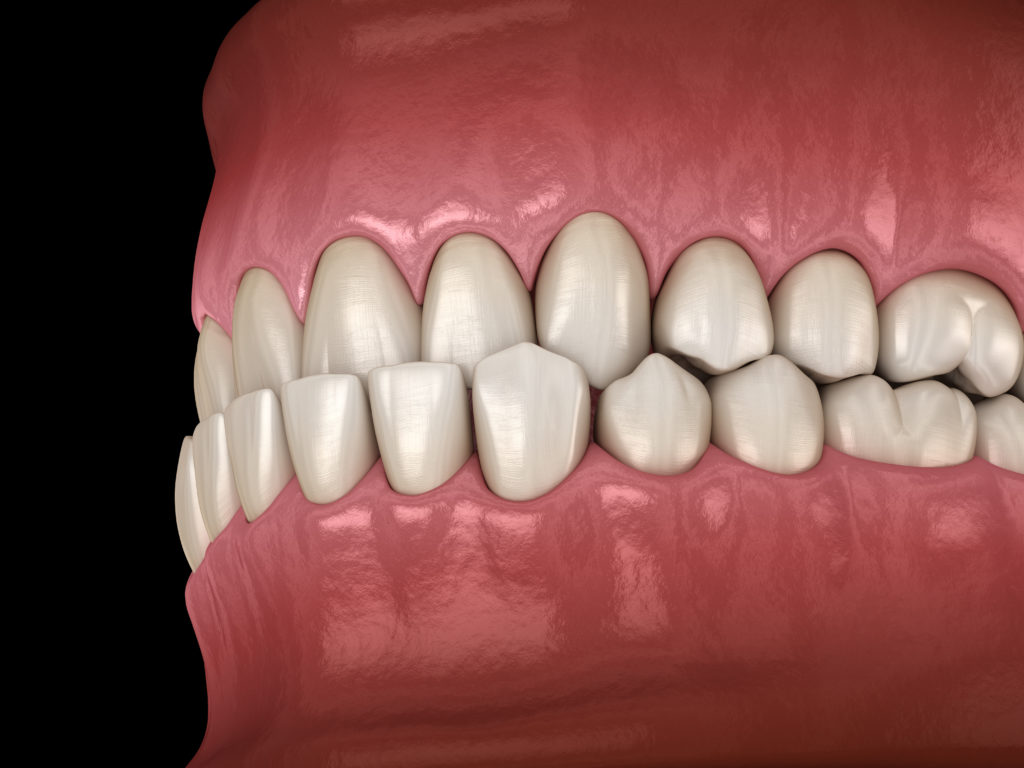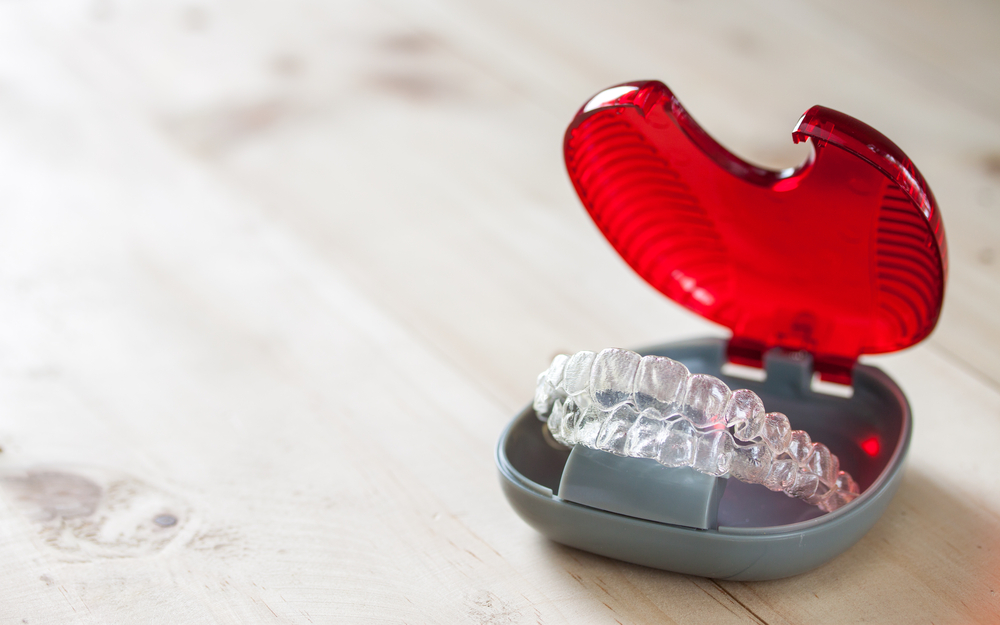How Difficult Is Overbite Correction for Adults in 2024

Perfectly aligned teeth are something that we all want, but only a certain number of people can boast of it. Most people have a deep bite or, in other words, overbite. Overbite is a type of malocclusion, which means that it is a form of deviation. Like many other malocclusions, a deep bite can be treated and corrected. However, there are different types of overbite and not all of them need to be treated. In reality, it differs depending on many different factors. If you’re an adult, and you’re thinking of correcting an overbite, you’re probably wondering if this is possible and what kind of results you can expect. Here are some more details about it.
What is an overbite and do I need to correct it?

An overbite means that your upper teeth overlap lower ones. It is pretty common and most people have it. A regular deep bite is somewhere between two and five millimeters. If it is significantly over this range, teeth will likely look less aesthetically pleasing.
An overbite usually doesn’t mean that you need to do any kind of procedure to correct it. However, sometimes the overbite is too large, so it causes some health problems. If that is the case, it is recommended to correct it and prevent future complications. On the other hand, people sometimes do not like how their teeth look due to deep bite, so they are determined to correct it. Corrective procedures can be applied in both scenarios.
Why do I have a deep bite?
The causes of a deep bite are different. Of course, it can be genetically determined when genes are the ones that determine the shape and size of the jaw that leads to an overbite. It can also be caused (or exacerbated) at an early age by sucking a thumb or overuse of a bottle. This is why parents need to be extra careful and prevent this as soon as possible. An overbite can even occur in teenagers due to a bad habit of biting nails, pencils, etc. So all of this information leads to a conclusion that you don’t always need to be born with an overbite to have it as an adult. It can be a consequence of various external factors.
What can happen over time if I don’t treat my overbite?

If your overbite is very pronounced, it can lead to medical problems and complications. For example, you may feel discomfort while eating, pain in the jaw, headache, and others. A deep bite can lead to gum damage and having trouble with chewing food. It can also affect the way you speak and pronounce certain words. After some longer time, an overbite can cause teeth to wear and tear. Over time, teeth can also become less aesthetically appealing, which is a huge concern to some people and affects their self-esteem. That is why most adults are looking for a way to solve this problem and get a nice smile if possible. Most people that are working on correcting their overbite doesn’t experience any health issues. They just want to look better.
If you have some medical problems due to a deep bite, or you just don’t like how your smile looks, you should visit https://mynazarethdentist.com/.
On their website, you can request an appointment and consult their experts to hear their professional opinion. A nice smile is just one request away.
How can I treat my overbite?
There are a few corrective procedures you can apply to treat an overbite in adults. There are several different approaches to this condition, depending on how pronounced the overbite is.
1. Braces

Braces correct an overbite by moving the teeth and can be very effective. They can realign the jaw and help to reduce a deep bite that way. Braces can be a pretty quick solution, but the thing with them is they are an aesthetic problem for most people. If this is not big deal for you, it can be an easy, practical choice. In some cases, a dentist can recommend teeth extraction in combination with braces if they find that it would be a better solution for you. Sometimes by reducing teeth number, the jaw goes back into its natural position, and overbite can be corrected. You may need to wear braces for up to three years, so make sure you collect all relevant information about this treatment before making your final decision.
2. Clear braces
Clear braces were introduced to the world a long time ago and for a long time, they weren’t as effective as metal ones. Today, you can achieve pretty similar results with both types of braces, and the difference is that clear braces offer you a more aesthetically pleasing option. At least most people prefer clear braces compared to metal ones that stand out much more. A bad thing is that not every dentist offers this kind of treatment, so you might have trouble finding someone who will be able to do this. But if you prefer this option much more, we recommend searching around and maybe set aside a little bit more time to find what you’re looking for. It will surely pay off eventually.
3. Invisalign

Another great option for treating deep bites in adults is Invisalign. It is a pretty old treatment that has been improved over time, and nowadays it provides results pretty similar to ones you can achieve with braces. A dentist can also add elastics or other attachments that can help achieve results faster.
Conclusion: Having a beautiful smile with perfectly aligned teeth is something we’d all like to have. But most people have a malocclusion called deep bite or an overbite. It means that upper teeth overlap bottom ones to a certain extent. Most people don’t need to do anything about it since it doesn’t cause any medical concerns. However, other ones would like to correct a deep bite to make their smile more aesthetically pleasing. You can fix an overbite by wearing metal or clear braces, Invisalign, or applying a few other treatments. If having beautiful teeth will make you happier, you should consult with a dentist and see what can you do about it to achieve desired results.




